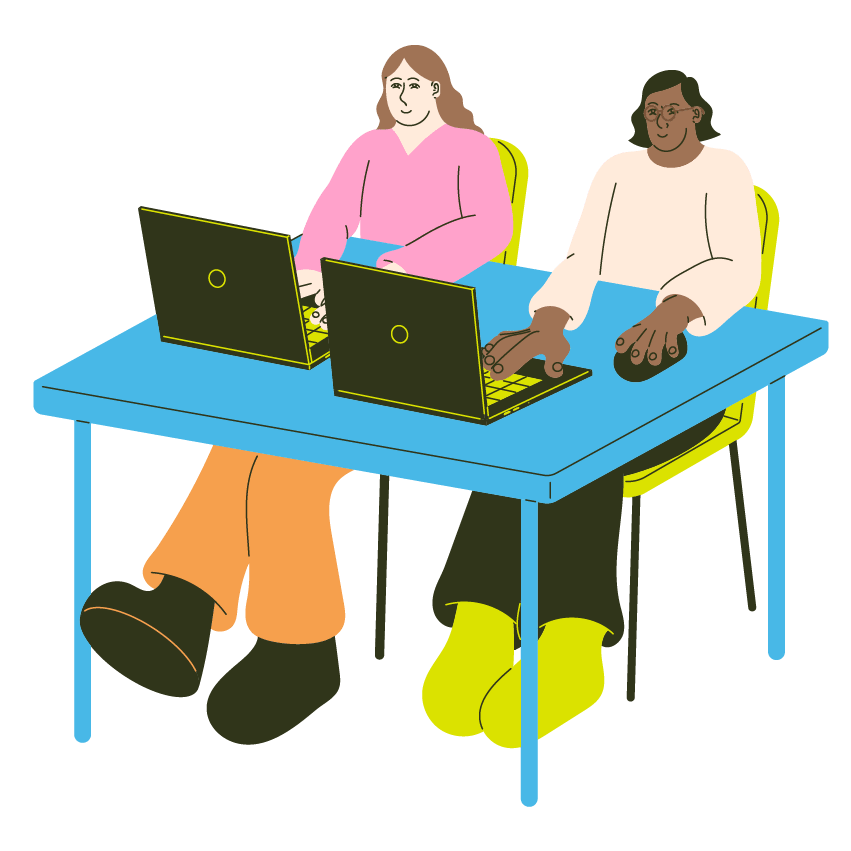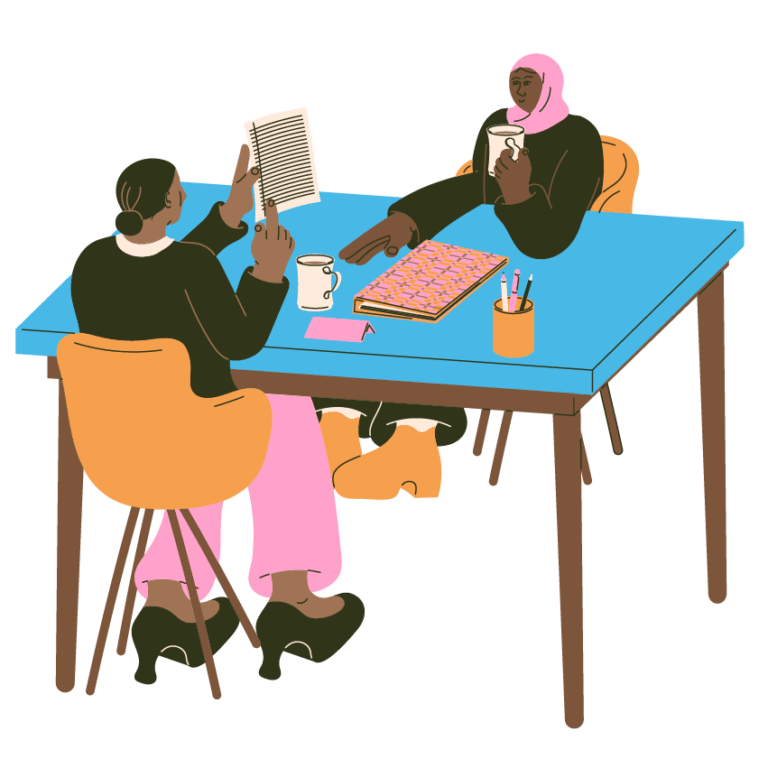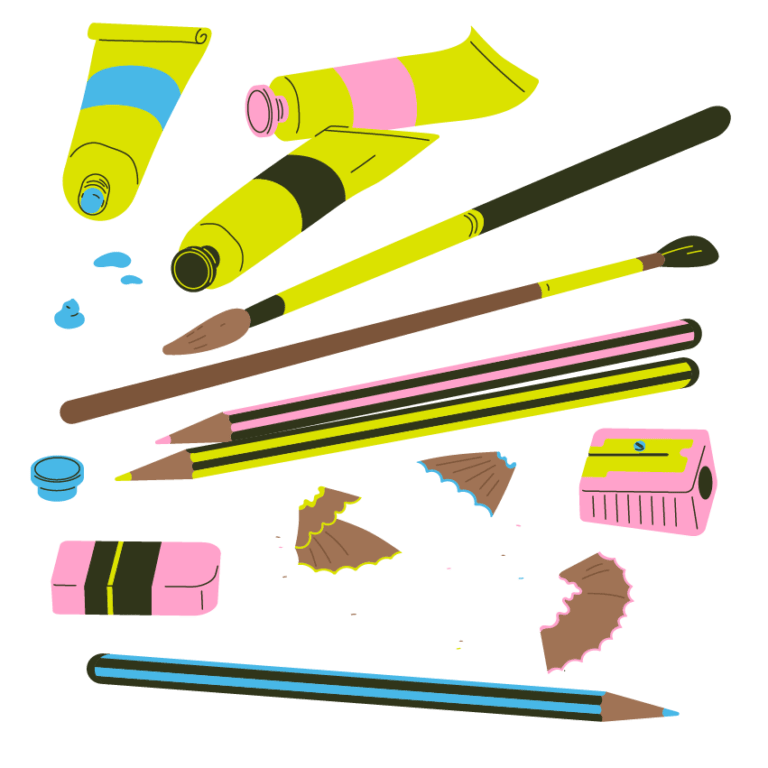We wanted to develop and deliver a series of small, non-traditional, participative, active social citizenship classes, for local New Scots women in Aberdeen. Participants were students rather than service users or clients. We wanted to provide qualified (Arabic) interpretation with no fee to enrol for participants.
Grampian Regional Equality Council (Active Citizens Class for Women)


Key Information
Our main objective is to ensure that New Scots women become active, informed, empowered members of society in Scotland, with strong social relationships and rights-based knowledge, where gender is not a barrier to their full participation.
We wanted to work towards this using the following outcomes:
- Increased knowledge of Scottish culture, customs, and history
- Increased rights-based knowledge
- Increasing feelings of positive identity, belonging and value
- Increased opportunities for community contribution
- Increased opportunities to practice English
Key Information
Partnership
North East Scotland College, Aberdeen University, NHS Grampian, Aberdeen Health and Social Care Partnership, Shelter Aberdeen, Grampian Credit Union, Community Food Initiatives North East, Aberdeen Sports Village, Aberdeen Art Gallery, Imams for Change, Amina Muslim Women’s Resource Centre, RGU Law Clinic, Aberdeen Law Project.
Geographical reach
Aberdeen
Dates
01/09/2021 – 30/11/2022
Target Groups
New Scots Women
Project Type
Supporting innovation
Background
We know there is a need and demand for Active Citizens Project Classes, based on our informal and formal consultation with local New Scots in Aberdeen, and based on the experience of colleagues and partners in services that engage with New Scots.
GREC have worked particularly closely with Syrian New Scots in Aberdeen since January 2019, as a commissioned service by Aberdeen City Council. Pre-COVID we delivered twice weekly, all-day drop-in sessions, where we had the opportunity to gain experience, build trust and rapport, identify issues and barriers local New Scots face, and to research how to support the community more proactively.
Syrian New Scot women expressed interest in our first, small pilot, but shared concerns about meaningful participation in mixed-gender groups. This is also consistent with concerns raised in the UNHCR Safer and Stronger report (2020), which highlights additional barriers to integration for women, and recommends the creation of more safe spaces for refugee women, to build confidence and networks, to feel empowered and able to speak out.
Involvement of New Scots in project
New Scots, refugees, and people seeking asylum were at the heart of our project from the beginning and throughout. Community feedback and experience at the start was crucial as the base from which the project built. The need for a women only space was identified directly from feedback and evaluation with Syrian New Scots in a previous project.
Challenges as above, around childcare in particular, but also around online fatigue that many people felt during the height of the pandemic, and broader meeting fatigue where some communities, particularly those from Afghanistan living in hotels, felt they had spoken to so many professionals without seeing meaningful action or change, that they didn’t see the point now. Our Project Worker, Gosia, worked especially hard to overcome these barriers, arranging multiple, genuine opportunities to participate, and the attendance and engagement that followed is testament to that.
Impact
As planned, we successfully delivered three blocks of our Active Citizens Women’s Group programme. Block 1 started on 20th January 2022, and ended on 14th April 2022. We primarily invited women from the local Syrian community. There were 13 formal, virtual sessions, two hours each, with professional interpretation, at the agreed Thursday afternoon meeting time, where attendance was required.
There were also 4 additional in person, optional attendances, where participants were able to experience: a Children’s Classics Concert at the Music Hall with family members; a lunchtime music concert at Cowdray Hall; a bespoke visit to the recently refurbished Art Gallery; and an event to celebrate International Women’s Day. We also organised a graduation celebration at Aberdeen Art Gallery, with tea and cakes after at a local café, where 4 out of the 6 consistent attendees achieved the 75% attendance rate to receive a certificate of participation. Block 1 started with 10 participants, but only 6 regularly attended after the first week. Two were quite understandable; one had a health issue, and another had been accepted on a local college programme. Overall, the six had a 76% attendance rate, with 59 attendances out of a possible 78.
Block 2 started on 20th May 2022, and ended on 5th August 2022. This block was primarily promoted to the community from Afghanistan still living in hotels in the city. There were 12 regular, in person classes at Aberdeen Arts Centre, 2 hours each, with interpretation, at the agreed Friday afternoon meeting time. There were also 3 extra activities, including: a bespoke Aberdeen Art Gallery visit and ceilidh; Mama Dance show at the Lemon Tree; and a guided visit to North East Scotland College (NESCOL). A graduation event followed on 9th September 2022 at Aberdeen Art Gallery, with catering at the venue. Ten women proactively signed up for week one via online form, and attendance at the first two classes was higher than anticipated; 13 at the first class, and 15 (12 returning) for the second class. There were 16 attendees in total, and 8 graduates who achieved required attendance and participation. Overall, the eight had an 81% attendance rate, with 78 attendances out of a possible 96.
Block 3 classes began on 26th August 2022, and ended on 11th November 2022. This block was primarily focussed towards the community from Ukraine. There were 12 regular, in person classes at Aberdeen Arts Centre, 2 hours each, with interpretation at the agreed Friday afternoon meeting time. There were 6 extra activities, including: a bespoke Aberdeen Art Gallery visit and tour; three shows at the Lemon Tree; one ballet and education event at His Majesty’s Theatre; and a guided visit to NESCOL.
A graduation event followed on 25th November 2022 at Aberdeen Art Gallery, with catering at the venue. There were 18 attendees in total, and 8 graduates who achieved required attendance and participation. Overall, the eight had an almost 88% attendance rate, with 84 attendances out of a possible 96.
Challenges encountered
We were somewhat disappointed that more women didn’t graduate, and that some people signed up, but only attended one or two classes, albeit this was mostly due to clashes with other studies or commitments, rather than disinterest.
We noted that there was less effort by participants to practice English than we hoped. This is was undoubtedly partly due to the sessions being online at that point in the pandemic, and we did address positively with interpreters where we observed improvement. Interpretation was also complicated by the requirement for both Dari and Pashto, and a lack of local interpreters available in person. Our colleagues at GREC’s in-trans project were very helpful here.
Childcare, or lack of, was an issue for some students, and our Project Worker reflected on the perceived lack of support from Dads.
Language skills, or lack of, remain a barrier to participation at times though. We also noted some cultural differences around expectations for confirming attendance, reporting absence, and general punctuality.
The positive aspects of taking on a new approach (innovative)/How the project has expanded on existing examples of good practice
Overall, the innovation was mostly around the application of Rowe’s Citizenship Model in a refugee setting, and the co-production/design element. In both areas, we were successful. We previously discussed with Dr Rowe and greatly appreciated his time and support. We’re keen to report back to colleagues within relevant networks, particularly Karen Black, at Turning Point Scotland, whose advice and support early on was crucial. As above, co-production has been highlighted throughout both as key and a significant success. Co-production allowed us to work directly WITH the community so that the classes reflected their wants and needs. We’ll be looking to embed this learning throughout our organisation going forward.
Reflections
As above, we’ve learned a lot about applying the Citizenship Model, and about co-production and design WITH community participants. We’ve also learned more about barriers to access. We will look to address childcare needs next time, and experiment with intensity of the programme, length of sessions, and times of day. We’d also like to engage more communities, and have more opportunities for different communities to mix and interact. We’re happy to share with interested parties.
Contact
Email:
rmackay@grec.co.uk


